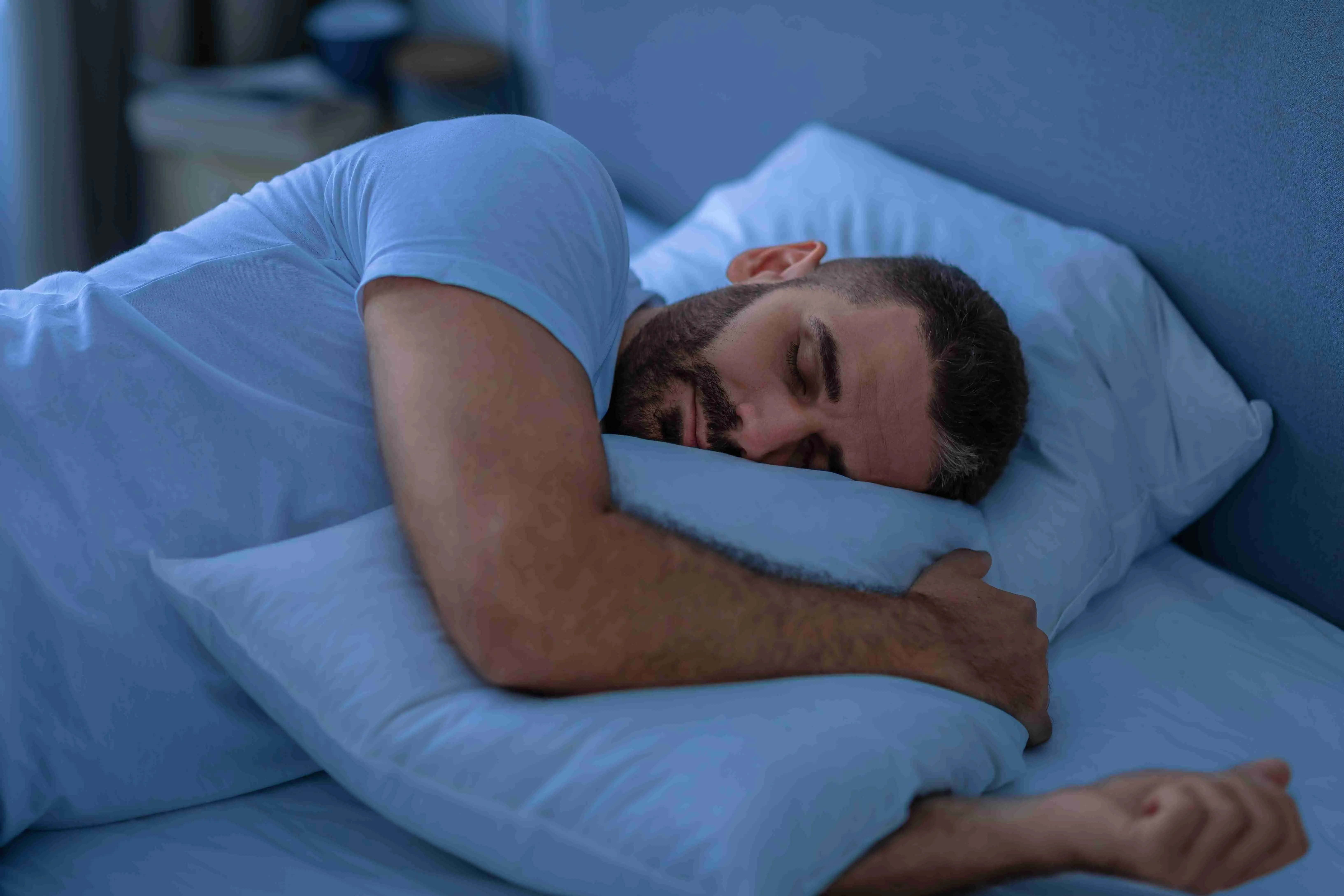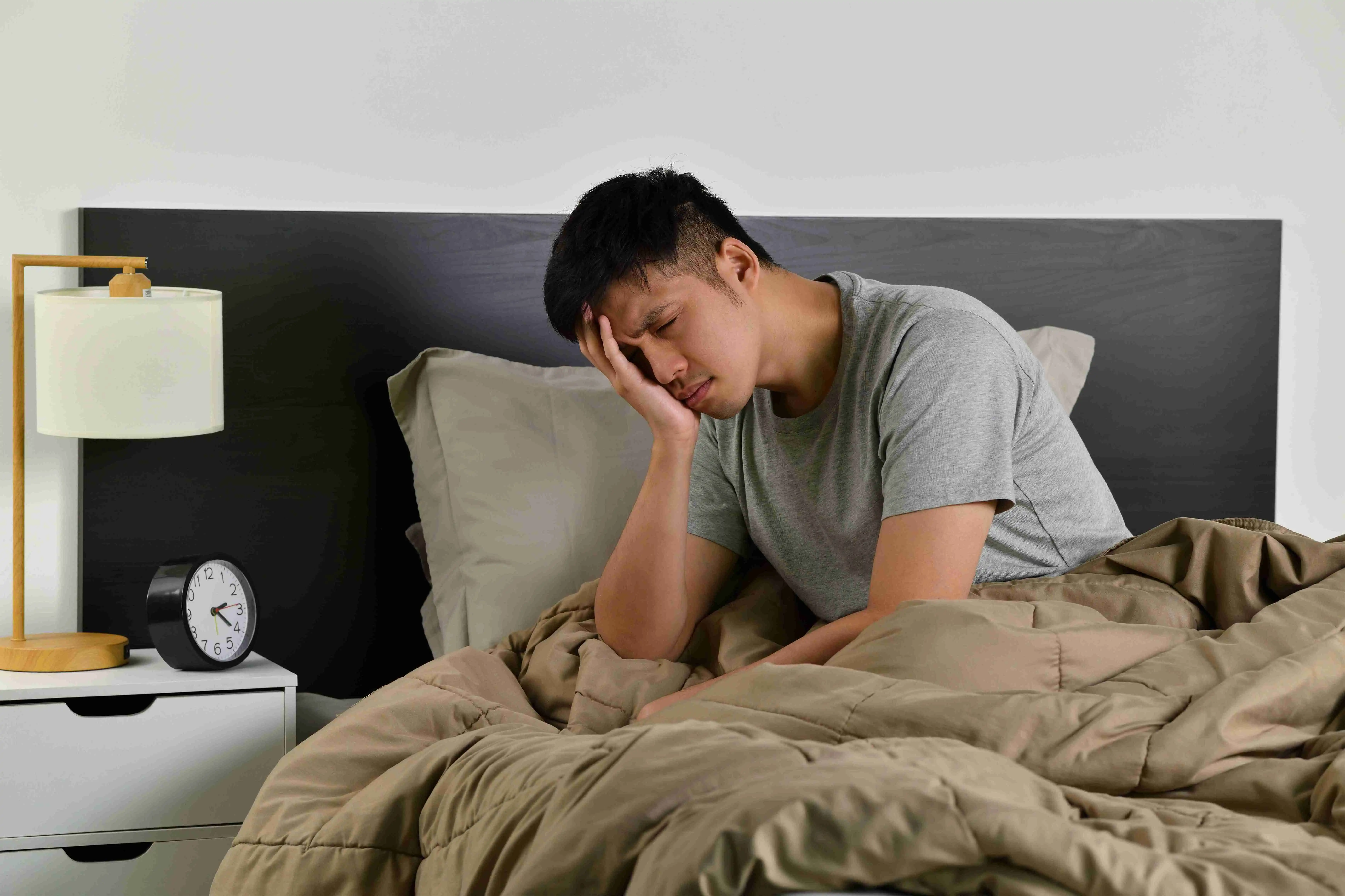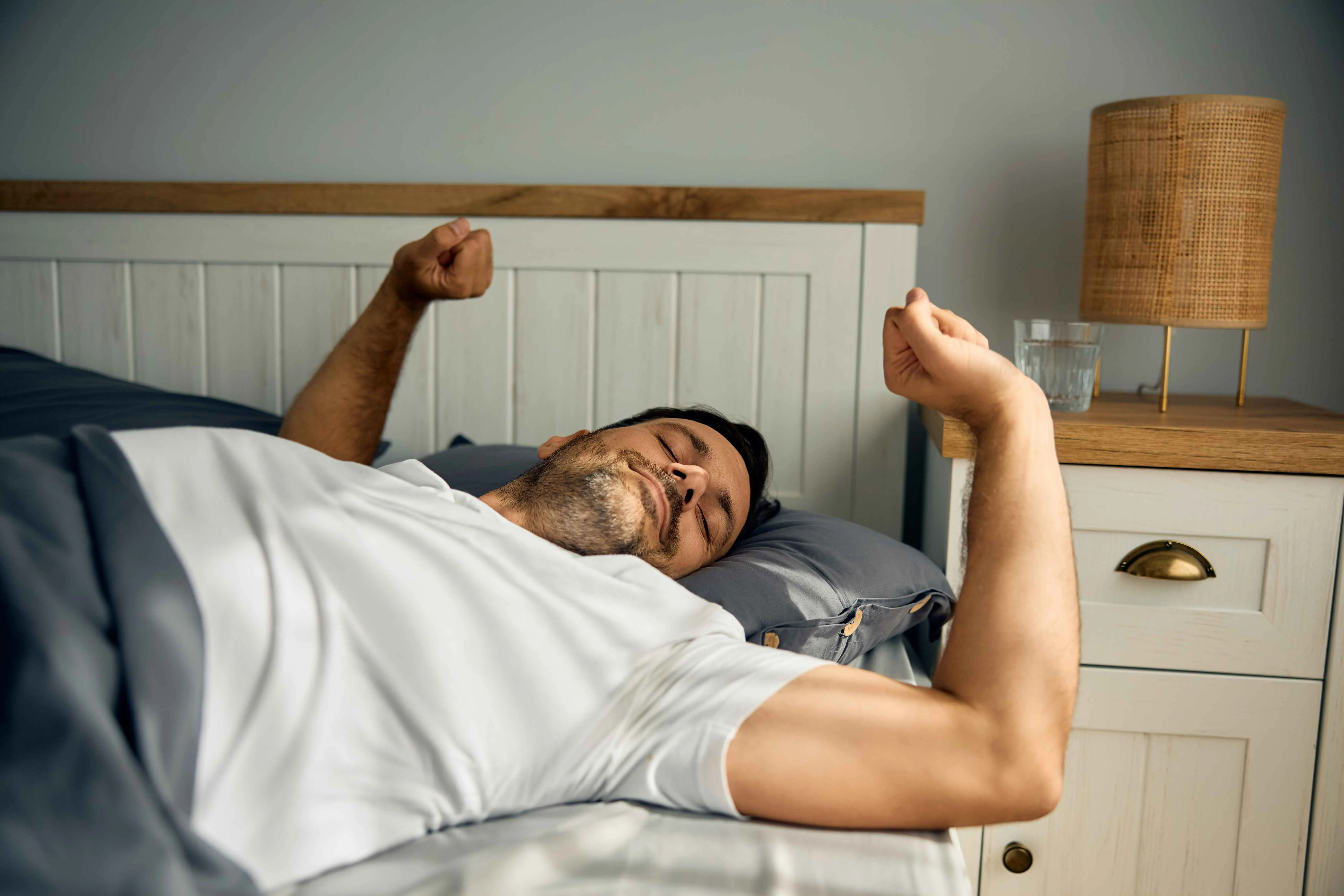Sleep plays a vital role in overall health, and its impact extends to hormone levels, including testosterone.
Testosterone is a key hormone responsible for various functions in the body, such as muscle growth, bone density, and libido. There’s a clear link between sleep and testosterone levels, with inadequate sleep leading to a decrease in testosterone production.
In this article, we will discuss the relationship between sleep and testosterone. Understanding how sleep affects testosterone can help individuals make informed decisions to optimize their hormone levels and overall well-being.
What is testosterone?
Testosterone is a hormone primarily produced in the testicles of males and in smaller amounts in the ovaries of females and the adrenal glands of both genders.
The Role of Testosterone in the Body
Testosterone plays a crucial role in the development of male reproductive tissues, such as the testes and prostate, as well as promoting secondary sexual characteristics like muscle mass, bone density, and facial hair growth.
Testosterone also impacts mood, energy levels, and overall health. In men, low testosterone levels can lead to various symptoms, including decreased libido, fatigue, and reduced muscle mass.
Monitoring testosterone levels is essential for maintaining overall well-being and addressing any potential health concerns.
Testosterone Functions
Testosterone, a key hormone in the male body, plays a crucial role in regulating various physiological processes.
- Muscle Growth and Strength: Testosterone aids in protein synthesis, which is essential for building and repairing muscle tissues. This hormone also enhances the development of muscle mass and increases muscle strength, making it vital for athletic performance and overall physical strength.
- Bone Density: Testosterone influences bone density by stimulating bone mineralization and supporting bone growth. Maintaining optimal levels of testosterone is crucial for promoting healthy bones and reducing the risk of osteoporosis.
- Regulates Sleep Patterns: Testosterone levels tend to fluctuate throughout the day, with higher levels contributing to better sleep quality. This hormone helps in maintaining a healthy sleep-wake cycle, ensuring proper rest and rejuvenation for the body.
- Metabolism: Testosterone also influences metabolism, affecting how the body processes food for energy. It plays a role in maintaining muscle mass and bone density, which are essential components of a healthy metabolism.
- Red Blood Cell Production: This hormone stimulates the bone marrow to produce red blood cells, which are essential for oxygen transport throughout the body. By encouraging erythropoiesis, the process of making red blood cells, testosterone helps keep the blood's hemoglobin and hematocrit levels at healthy levels.
- Mood and Emotional Stability: Testosterone is involved in emotional stability. Adequate levels of testosterone are associated with improved mood and reduced risk of developing conditions like depression and anxiety.
- Supports Immune Function: Testosterone helps regulate the immune system, playing a part in the body's ability to fight off infections and diseases. It aids in the production of white blood cells, which are essential for a robust immune response.
- Cognitive Function and Memory: Testosterone levels can impact cognitive abilities such as reasoning, problem-solving, and spatial awareness. Moreover, testosterone has been linked to memory formation and retention. Adequate levels of testosterone are believed to support overall brain health and may help reduce the risk of age-related cognitive decline.
How Sleep Affects Testosterone Production

Sleep plays a crucial role in regulating testosterone production in the body. Inadequate sleep can lead to a decrease in testosterone levels, impacting various physiological functions.
During sleep, the body goes through different sleep stages that are essential for hormone regulation, including testosterone.
Lack of quality sleep can disrupt this process, resulting in lower testosterone production. It is recommended that adults aim for 7-9 hours of uninterrupted sleep each night to support healthy testosterone levels.
Prioritizing quality sleep is therefore vital for maintaining optimal hormonal balance and overall well-being.
Factors Affecting Testosterone Levels
Testosterone levels in the body are influenced by various factors. These include age, diet, exercise, and overall mental health and physical health.
By addressing these factors through lifestyle changes and medical interventions if necessary, individuals can work toward achieving hormonal balance and overall wellness.
Sleep Quality and Duration
Adequate and restful sleep is crucial for maintaining healthy testosterone levels. Sleep deprivation or poor sleep quality can lead to a decrease in testosterone production.
This highlights the importance of establishing and maintaining good sleep hygiene to support overall hormonal balance.
Age
As men grow older, their testosterone levels naturally decline. This decrease typically begins around the age of 30 and continues gradually as they age.
While this decline is a normal part of the aging process, certain lifestyle choices and habits can either accelerate or decelerate this decline.
Therefore, it becomes essential for older men to focus on factors such as diet and exercise to help support healthy testosterone levels as they age.
Diet and Nutrition
Diet plays a crucial role in regulating testosterone levels. Consuming a balanced diet that includes essential nutrients like vitamins, minerals, and healthy fats is vital for overall hormonal health.
For instance, diets high in processed foods, sugars, and unhealthy fats can negatively impact testosterone production.
Exercise and Physical Activity
Engaging in regular exercise has been shown to positively impact testosterone production.
Both aerobic exercises, such as running or swimming, and resistance training, like weightlifting, can help boost testosterone levels.
Find out the Best Exercises for Better Sleep.
Body Fat and Obesity
Obesity is another significant factor that can affect testosterone levels. Excess body fat, especially around the abdomen, can lead to increased estrogen production, which in turn can lower testosterone levels.
This hormonal imbalance can have various negative effects on overall health and well-being.
Stress and Cortisol Levels
When the body is under stress, cortisol, often referred to as the stress hormone, is released in response.
Elevated cortisol levels can inhibit the production of testosterone, leading to a decrease in its levels.
Genetics and Individual Differences
Testosterone levels are influenced by a variety of factors, with genetics and individual differences playing a significant role in determining a person's hormone levels.
Genetics can predispose individuals to either higher or lower testosterone production, impacting their overall hormonal balance.
Low Testosterone Due to Poor Sleep

Low testosterone levels can be attributed to poor sleep patterns. Poor sleep quality or insufficient sleep duration can lead to a decrease in testosterone levels, impacting overall health and well-being.
Addressing sleep issues and prioritizing restful sleep can potentially help in maintaining optimal testosterone levels.
Symptoms of Low Testosterone
Low testosterone levels can lead to various symptoms impacting both physical and mental well-being.
Addressing the root cause of low testosterone through medical intervention and lifestyle changes can help improve sleep quality and alleviate the associated symptoms.
- Reduced Bone Density: Reduced bone density, also known as osteoporosis, can increase the risk of fractures and bone-related issues. Men with low testosterone may experience decreased muscle mass, fatigue, and mood changes alongside reduced bone density.
- Poor Sleep Quality: Individuals with low testosterone may experience disturbances in their sleep patterns, such as insomnia or difficulty staying asleep throughout the night. This can lead to feelings of fatigue and reduced overall energy levels during the day.
- Increased Daytime Sleepiness: People with low testosterone may experience fatigue and a lack of energy throughout the day, leading to an overwhelming urge to nap or sleep. This excessive daytime sleepiness can impact daily productivity and overall quality of life.
- Weakened Immune System: Low testosterone levels can contribute to a weakened immune system, making individuals more susceptible to illnesses and infections. Testosterone plays a vital role in supporting immune function by regulating the production of white blood cells, which are essential for fighting off viruses and bacteria.
- Decreased Muscle Mass and Strength: Individuals experiencing this hormonal imbalance may notice a reduction in their muscle bulk and overall physical power. This can impact their ability to engage in physical activities and may result in feelings of weakness or fatigue.
- Increased Body Fat and Slower Metabolism: Individuals with low testosterone may notice an accumulation of body fat, particularly around the abdomen. This can be accompanied by a decrease in muscle mass. Furthermore, a slower metabolism can make it challenging to maintain a healthy weight and may lead to feelings of fatigue or sluggishness.
- Decreased Libido and Sexual Health Issues: Individuals experiencing low testosterone may notice a significant decline in their sexual desire and overall interest in sexual activities. In addition to decreased libido, low testosterone can also lead to various sexual health issues such as erectile dysfunction.
- Hot Flashes or Night Sweats: Women in menopause often experience lower testosterone levels, which might trigger episodes of hot flashes and night sweats. These symptoms are not exclusive to menopausal women; they can also affect men with low testosterone. Hot flashes are sudden feelings of warmth that may cause sweating, while night sweats refer to excessive sweating during sleep.
Sleep Disorders That Lower Testosterone
Sleep disorders can have a significant impact on hormone levels, including testosterone.
The relationship between sleep disorders and testosterone levels is complex and bidirectional, as low testosterone levels can also contribute to poor sleep quality, creating a vicious cycle.
- Sleep Apnea: Sleep apnea is a condition where breathing repeatedly stops and starts during sleep, leading to oxygen deprivation and fragmented sleep. Individuals with sleep apnea often have lower testosterone levels compared to those without the disorder.
- Insomnia: Insomnia is characterized by difficulty falling asleep or staying asleep, leading to poor sleep quality and duration. Chronic insomnia has been linked to lower testosterone levels, as sleep deprivation can disrupt the body's hormonal balance.
High Testosterone Due to Poor Sleep

Insufficient or disrupted sleep can lead to an increase in testosterone levels in both men and women. This surge in testosterone due to poor sleep quality can have various consequences on overall health and well-being
Symptoms of High Testosterone
High testosterone levels in the body can lead to various symptoms that may indicate an imbalance in hormone levels.
It is essential to consult a healthcare provider if experiencing these symptoms to determine the underlying cause and appropriate treatment options.
- High Blood Pressure: Elevated testosterone levels can potentially increase the risk of developing hypertension, which is a serious condition that can put a strain on the heart and blood vessels. Individuals experiencing unexplained or persistent high blood pressure should consider consulting a healthcare provider to assess their hormone levels.
- Snoring: While snoring can be caused by various factors, including obesity or allergies, high testosterone levels have also been linked to an increased likelihood of it. This could be due to the potential impact of testosterone on airway tissues and muscles, leading to disruptions in breathing during sleep.
- Frequent Headaches: Hormonal imbalances, including elevated testosterone, may contribute to the development of headaches or migraines in some individuals. These headaches can be debilitating and affect daily quality of life. If an individual encounters persistent or severe headaches in addition to other symptoms associated with high testosterone levels, it can significantly impact their quality of life.
- Increased Libido: One common symptom of high testosterone is an increased libido, where individuals may experience a heightened sex drive or excessive sexual desire.
- Anxiety or Depression: Individuals with excessively elevated testosterone levels may experience difficulties in managing stress, leading to heightened feelings of anxiety. Additionally, the hormonal fluctuations can disrupt neurotransmitter levels in the brain, potentially exacerbating symptoms of depression.
- Mood Swings: Individuals with high testosterone levels may also experience mood swings that can range from irritability to aggression. These mood swings can impact a person's emotional well-being and interpersonal relationships.
- Unusual Hair Growth or Hair Loss: High testosterone levels can lead to various symptoms, including unusual hair growth or hair loss. In individuals with elevated testosterone, they may experience excessive facial or body hair growth, known as hirsutism, particularly in areas where men typically grow hair, such as the face, chest, and back. On the contrary, some may also notice hair thinning or balding on the scalp due to high testosterone levels.
Sleep Disorders That Increase Testosterone
Multiple sleep disorders have proven that they could increase testosterone levels. Addressing sleep disorders through proper sleep hygiene practices and seeking medical intervention when necessary is crucial in maintaining overall hormone balance and optimizing health.
- Circadian Rhythm Disorders: Circadian Rhythm Disorders, which disrupt the body's natural sleep-wake cycle, have been linked to hormonal imbalances, including increased testosterone production. This disruption in the circadian rhythm can lead to reduced quality and quantity of sleep, ultimately affecting testosterone levels.
- Narcolepsy: Narcolepsy, a neurological disorder characterized by excessive daytime sleepiness and sudden sleep attacks, may also experience changes in testosterone levels. The irregular sleep patterns and disturbances associated with narcolepsy can interfere with the body's hormone regulation, potentially leading to fluctuations in testosterone levels.
Tips to Optimize Sleep for Healthy Testosterone Levels
Optimizing sleep is crucial for maintaining healthy testosterone levels. Adequate rest plays a significant role in regulating hormone production, including testosterone.
By prioritizing restful sleep, individuals can positively impact their overall hormonal balance and well-being.
Maintain a Consistent Sleep Schedule
Maintaining a consistent sleep schedule is crucial for optimizing testosterone levels and overall health.
To ensure healthy testosterone production, it is recommended to go to bed and wake up at the same time every day, even on weekends.
Consistency in sleep patterns helps regulate hormone levels, including testosterone.
Create an Optimal Sleep Environment
To optimize sleep for healthy testosterone levels, it is crucial to create an optimal sleep environment.
This includes keeping the bedroom cool, dark, and quiet to promote uninterrupted rest. Avoiding screens and stimulating activities before bed can also improve sleep quality.
Know more about creating the Best Bedtime Routine for You.
Reduce Blue Light Exposure Before Bed
Blue light emitted from electronic devices like smartphones and computers can disrupt the body's natural sleep-wake cycle, leading to lower testosterone levels.
To combat this, it is recommended to limit screen time at least an hour before bedtime. Additionally, using blue light-blocking glasses or installing apps that reduce blue light emission on devices can help mitigate its negative effects on sleep quality and hormone production.
Manage Stress and Lower Cortisol
High stress and elevated cortisol can disrupt sleep patterns and lead to decreased testosterone production.
To counter this, incorporating relaxation techniques such as meditation, deep breathing exercises, or engaging in physical activity can help reduce stress and promote better sleep quality.
Optimize Nutrition for Better Sleep
Optimizing nutrition for better sleep is crucial for maintaining healthy testosterone levels. Incorporating foods rich in magnesium, zinc, and vitamin D can promote quality sleep, which in turn supports optimal testosterone production.
Check out the Healthiest Snacks to eat before going to bed.
Exercise at the Right Time
Engaging in moderate-intensity exercise earlier in the day can help regulate circadian rhythms, promoting better sleep patterns.
This can lead to improved testosterone levels, as sleep plays a vital role in hormone regulation.
By incorporating regular exercise into your daily routine and timing it appropriately, you can support optimal sleep quality and overall hormonal balance, ultimately benefiting your testosterone levels and overall health.
Limit Stimulants and Sleep Disruptors
To enhance testosterone levels, optimizing sleep is crucial. One effective tip is to limit stimulants and sleep disruptors.
Caffeine, nicotine, and alcohol can disrupt sleep patterns, affecting testosterone production.
Get Natural Sunlight Exposure
One effective tip to enhance sleep and support testosterone production is to prioritize getting natural sunlight exposure during the day.
Exposure to natural light helps regulate the body's internal clock, known as the circadian rhythm, which in turn improves sleep quality.
FAQs
How many hours of sleep do I need for healthy testosterone levels?
Adults should aim for 7 to 9 hours of quality sleep per night to support optimal hormonal balance.
Can sleep deprivation lower testosterone?
Yes, inadequate sleep can disrupt the body's hormonal balance, leading to a decrease in testosterone production.
Can napping help restore testosterone?
Napping has been linked to improved overall health and hormonal balance, which may contribute to the restoration of testosterone levels.
What are the signs that I have unhealthy levels of testosterone?
Some common indicators include sudden weight gain, particularly around the midsection; decreased muscle mass and strength; fatigue or decreased energy levels; mood swings or irritability; decreased libido or erectile dysfunction in men; and irregular menstrual cycles or hirsutism (excessive hair growth) in women.
Conclusion
Prioritizing good sleep hygiene is essential for maintaining optimal testosterone levels and overall health.
By ensuring adequate and quality sleep, individuals can support their body's natural hormone production and function.
Making lifestyle changes to improve sleep quality, such as creating a consistent sleep schedule and creating a comfortable sleep environment, can positively impact testosterone levels.
Ultimately, recognizing the connection between sleep and testosterone underscores the importance of healthy sleep habits in promoting overall wellness.
Karen Barnard
Karen is a Human Movement Science expert and a certified sports nutrition and massage therapist. At Sleepiverse, she combines her passion for human movement science and sleep health to educate herself and her readers about healthier sleep. In addition to writing articles, Karen manages a fitness studio offering private training, athletic conditioning, and sports massage therapy. She focuses on providing people with a holistic environment for people to reach their health goals, often incorporating stretch therapy to promote mental tranquillity and help people improve their sleep.


